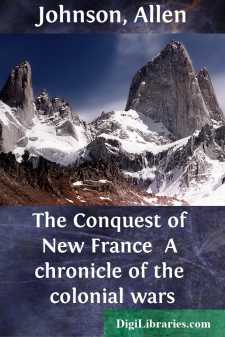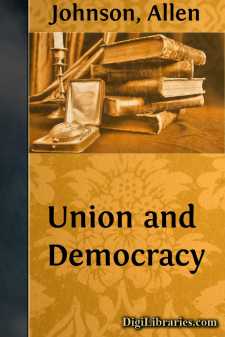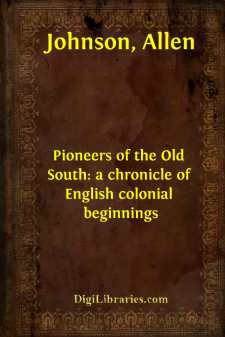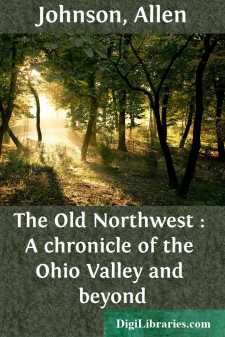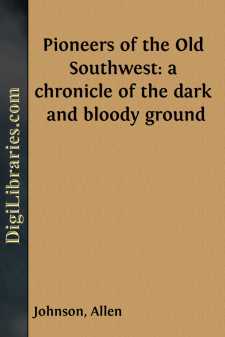Categories
- Antiques & Collectibles 13
- Architecture 36
- Art 48
- Bibles 22
- Biography & Autobiography 813
- Body, Mind & Spirit 138
- Business & Economics 28
- Children's Books 12
- Children's Fiction 9
- Computers 4
- Cooking 94
- Crafts & Hobbies 4
- Drama 346
- Education 46
- Family & Relationships 57
- Fiction 11821
- Games 19
- Gardening 17
- Health & Fitness 34
- History 1377
- House & Home 1
- Humor 147
- Juvenile Fiction 1873
- Juvenile Nonfiction 202
- Language Arts & Disciplines 88
- Law 16
- Literary Collections 686
- Literary Criticism 179
- Mathematics 13
- Medical 41
- Music 40
- Nature 179
- Non-Classifiable 1768
- Performing Arts 7
- Periodicals 1453
- Philosophy 64
- Photography 2
- Poetry 896
- Political Science 203
- Psychology 42
- Reference 154
- Religion 505
- Science 126
- Self-Help 81
- Social Science 81
- Sports & Recreation 34
- Study Aids 3
- Technology & Engineering 59
- Transportation 23
- Travel 463
- True Crime 29
Allen Johnson
Allen Johnson (1870-1931) was a prominent American historian and writer, renowned for his comprehensive biographical works and editorial contributions. He served as a professor of history at Yale University, where he significantly influenced historical scholarship. Johnson also edited the *Dictionary of American Biography*, a pivotal resource for researchers and historians.
Author's Books:
Sort by:
by:
Allen Johnson
CHAPTER I. THE COMMANDER-IN-CHIEF Moving among the members of the second Continental Congress, which met at Philadelphia in May, 1775, was one, and but one, military figure. George Washington alone attended the sittings in uniform. This colonel from Virginia, now in his forty-fourth year, was a great landholder, an owner of slaves, an Anglican churchman, an aristocrat, everything that stands in...
more...
by:
Allen Johnson
CHAPTER I. The Conflict Opens: Frontenac And Phips Many centuries of European history had been marked by war almost ceaseless between France and England when these two states first confronted each other in America. The conflict for the New World was but the continuation of an age-long antagonism in the Old, intensified now by the savagery of the wilderness and by new dreams of empire. There was another...
more...
by:
Allen Johnson
CHAPTER I THE ORDEAL OF THE CONFEDERATION It was characteristic of the people of the United States that once assured of their political independence they should face their economic future with buoyant expectations. As colonizers of a new world they were confident in their own strength. When once the shackles of the British mercantile system were shaken off, they did not doubt their ability to compete...
more...
by:
Allen Johnson
CHAPTER I. THE THREE SHIPS SAIL Elizabeth of England died in 1603. There came to the English throne James Stuart, King of Scotland, King now of England and Scotland. In 1604 a treaty of peace ended the long war with Spain. Gone was the sixteenth century; here, though in childhood, was the seventeenth century. Now that the wars were over, old colonization schemes were revived in the English mind. Of the...
more...
by:
Allen Johnson
Chapter I. Pontiac's Conspiracy The fall of Montreal, on September 8, 1760, while the plains about the city were still dotted with the white tents of the victorious English and colonial troops, was indeed an event of the deepest consequence to America and to the world. By the articles of capitulation which were signed by the Marquis de Vaudreuil, Governor of New France, Canada and all its...
more...
by:
Allen Johnson
CHAPTER I. PRESIDENT JEFFERSON'S COURT The rumble of President John Adams's coach had hardly died away in the distance on the morning of March 4,1801, when Mr. Thomas Jefferson entered the breakfast room of Conrad's boarding house on Capitol Hill, where he had been living in bachelor's quarters during his Vice-Presidency. He took his usual seat at the lower end of the table among...
more...
by:
Allen Johnson
CHAPTER I. THE FIRST FIFTY YEARS Scarcely more than half a century has passed since the Dominion of Canada, in its present form, came into existence. But thrice that period has elapsed since the fateful day when Montcalm and Wolfe laid down their lives in battle on the Plains of Abraham, and the lands which now comprise the Dominion finally passed from French hands and came under British rule. The...
more...
by:
Allen Johnson
Chapter I. The Tread Of Pioneers The Ulster Presbyterians, or "Scotch-Irish," to whom history has ascribed the dominant role among the pioneer folk of the Old Southwest, began their migrations to America in the latter years of the seventeenth century. It is not known with certainty precisely when or where the first immigrants of their race arrived in this country, but soon after 1680 they were...
more...
by:
Allen Johnson
CHAPTER I JACKSON THE FRONTIERSMAN Among the thousands of stout-hearted British subjects who decided to try their fortune in the Western World after the signing of the Peace of Paris in 1763 was one Andrew Jackson, a Scotch-Irish Presbyterian of the tenant class, sprung from a family long resident in or near the quaint town of Carrickfergus, on the northern coast of Ireland, close by the newer and more...
more...
by:
Allen Johnson
CHAPTER I The dramatic moments in the colonizing of coastal New England have passed into song, story, and sober chronicle; but the farther migration of the English people, from tide-water to interior, has been too prosaic a theme for poets and too diverse a movement for historians. Yet when all the factors in our national history shall be given their full value, none will seem more potent than the...
more...



